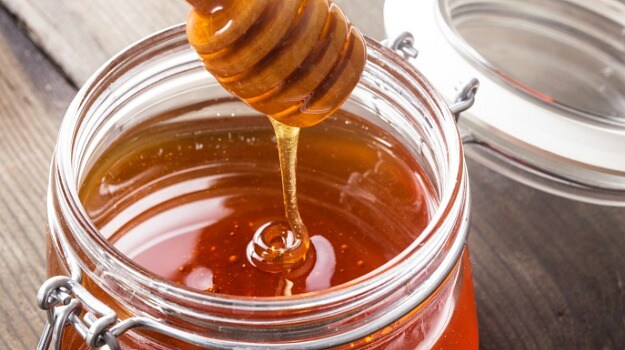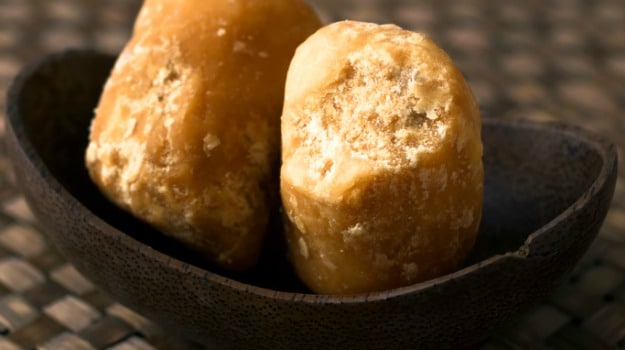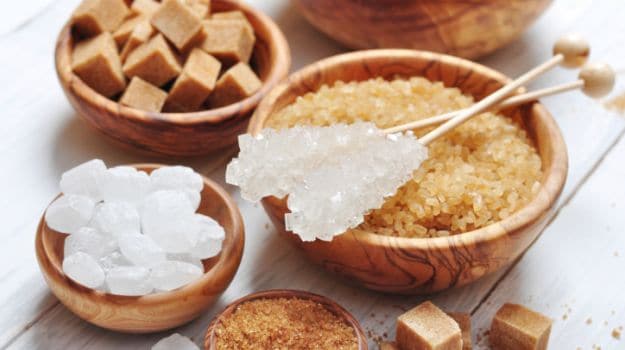You’ve probably heard the stories from former sugar consumers, who say that cutting processed sugar from their diets made them feel much more energetic, helped them drop a few pounds around the waistline by increasing metabolism, improved their skin, teeth, digestion, heart and brain functions, and reduced mental stress.The sugar they’re talking about is the refined variety that so many people drop into their cups of tea across India, and consume in the form of mithai, baked goods, sugary sodas and other junk food. It’s a highly processed product – the white is not a natural colour, and it is developed due to bleaching. It has been cleansed so much that there is absolutely no nutritional content, and as such, the product becomes pure, refined carbohydrates. It is a source of excess starch that the body will struggle to absorb without the minerals that have been removed during the purification process.Consumption of white sugar even in nominal amounts can impact a person’s body. Have you ever felt sluggish soon after eating that afternoon doughnut? White sugar is not only unhealthy, but there has been a controversy on it being produced by unethical means too. In the United States, PETA (People for the Ethical Treatment of Animals) is working to ban the use of bone char, made from animal bones, which is used to process refined white sugar.
(Also Read: Why do we Crave Sugar, Salt and Fat?)
 But cutting the sweet stuff out completely isn’t for everyone. We’ve compiled a few options for aspartame-free natural sweeteners, but remember that as with everything, excess consumption can also lead to negative consequences.Natural Raw Honey
But cutting the sweet stuff out completely isn’t for everyone. We’ve compiled a few options for aspartame-free natural sweeteners, but remember that as with everything, excess consumption can also lead to negative consequences.Natural Raw Honey Honey in its purest form makes a great sweetener for drinks as well as desserts. Since raw honey is unprocessed, it therefore is a carrier of beneficial qualities. It contains vitamins and trace amounts of minerals, iron, calcium, and copper, among others.
Honey in its purest form makes a great sweetener for drinks as well as desserts. Since raw honey is unprocessed, it therefore is a carrier of beneficial qualities. It contains vitamins and trace amounts of minerals, iron, calcium, and copper, among others.
Raw honey contains antibacterial and antiviral qualities, which help in internal cell repair and degenerative conditions, as well as heart disease. It is also great for those prone to allergies, and speeds up the process of healing eye infections and curing throat conditions. It is an anytime energy booster. But as with all sweet stuff, too much can make one pack on a little extra weight.SteviaStevia is a herb of South American origin. The leaves are used in the extraction of a natural sugar either in the powdered or liquid form. Native Americans were using stevia as a part of their diet long before American colonisation. The Japanese promoted it in the 1960s when chemical-based artificial sweeteners (which included anything synthetically made) were banned in the country in a move towards promoting healthier lifestyles. They found that stevia was an effective sweetening substitute for those with Type 2 Diabetes, and also suppressed high blood pressure.But there are warnings on this one – some people have reported nausea and dizziness with excess consumption, those with low blood pressure run the risk of further decrease, and anyone allergic to ragweed, marigolds, chrysanthemums and daisies may find themselves suffering similar allergies to stevia as the herb is part of the same family.If you’re buying stevia, check the ingredients on the package and make sure you are getting a pure product. Many companies supplement it with chemical-based artificial sweeteners that can negate the benefits of stevia.Jaggery Jaggery is found right here at home in India and is probably the most inexpensive form of natural sweetener we have access to. Made by boiling concentrated sugar cane contents until it hardens, gur, as it is known in Hindi, is then rolled into patties or chopped into blocks. Today, you can also find it in the granulated form, similar to sugar, for those who wish to use it easily as a teatime sweetener.Our ancestors discovered jaggery and it was a great go-to ingredient for boosting one’s immunity and iron level, preventing constipation, detoxifying the liver, curing cough and cold, warming the body in winters, as well as being a source of energy.As with honey, jaggery can be a little high on the calories, so consume it in moderation. Also, if buying off the grocery store shelves, make sure there is no added white sugar listed in the ingredients, as this adulterates the product, negating its health benefits.Disclaimer:The opinions expressed within this article are the personal opinions of the author. NDTV is not responsible for the accuracy, completeness, suitability, or validity of any information on this article. All information is provided on an as-is basis. The information, facts or opinions appearing in the article do not reflect the views of NDTV and NDTV does not assume any responsibility or liability for the same.
Jaggery is found right here at home in India and is probably the most inexpensive form of natural sweetener we have access to. Made by boiling concentrated sugar cane contents until it hardens, gur, as it is known in Hindi, is then rolled into patties or chopped into blocks. Today, you can also find it in the granulated form, similar to sugar, for those who wish to use it easily as a teatime sweetener.Our ancestors discovered jaggery and it was a great go-to ingredient for boosting one’s immunity and iron level, preventing constipation, detoxifying the liver, curing cough and cold, warming the body in winters, as well as being a source of energy.As with honey, jaggery can be a little high on the calories, so consume it in moderation. Also, if buying off the grocery store shelves, make sure there is no added white sugar listed in the ingredients, as this adulterates the product, negating its health benefits.Disclaimer:The opinions expressed within this article are the personal opinions of the author. NDTV is not responsible for the accuracy, completeness, suitability, or validity of any information on this article. All information is provided on an as-is basis. The information, facts or opinions appearing in the article do not reflect the views of NDTV and NDTV does not assume any responsibility or liability for the same.
(Also Read: Why do we Crave Sugar, Salt and Fat?)
 But cutting the sweet stuff out completely isn’t for everyone. We’ve compiled a few options for aspartame-free natural sweeteners, but remember that as with everything, excess consumption can also lead to negative consequences.Natural Raw Honey
But cutting the sweet stuff out completely isn’t for everyone. We’ve compiled a few options for aspartame-free natural sweeteners, but remember that as with everything, excess consumption can also lead to negative consequences.Natural Raw Honey Honey in its purest form makes a great sweetener for drinks as well as desserts. Since raw honey is unprocessed, it therefore is a carrier of beneficial qualities. It contains vitamins and trace amounts of minerals, iron, calcium, and copper, among others.
Honey in its purest form makes a great sweetener for drinks as well as desserts. Since raw honey is unprocessed, it therefore is a carrier of beneficial qualities. It contains vitamins and trace amounts of minerals, iron, calcium, and copper, among others.Raw honey contains antibacterial and antiviral qualities, which help in internal cell repair and degenerative conditions, as well as heart disease. It is also great for those prone to allergies, and speeds up the process of healing eye infections and curing throat conditions. It is an anytime energy booster. But as with all sweet stuff, too much can make one pack on a little extra weight.SteviaStevia is a herb of South American origin. The leaves are used in the extraction of a natural sugar either in the powdered or liquid form. Native Americans were using stevia as a part of their diet long before American colonisation. The Japanese promoted it in the 1960s when chemical-based artificial sweeteners (which included anything synthetically made) were banned in the country in a move towards promoting healthier lifestyles. They found that stevia was an effective sweetening substitute for those with Type 2 Diabetes, and also suppressed high blood pressure.But there are warnings on this one – some people have reported nausea and dizziness with excess consumption, those with low blood pressure run the risk of further decrease, and anyone allergic to ragweed, marigolds, chrysanthemums and daisies may find themselves suffering similar allergies to stevia as the herb is part of the same family.If you’re buying stevia, check the ingredients on the package and make sure you are getting a pure product. Many companies supplement it with chemical-based artificial sweeteners that can negate the benefits of stevia.Jaggery
 Jaggery is found right here at home in India and is probably the most inexpensive form of natural sweetener we have access to. Made by boiling concentrated sugar cane contents until it hardens, gur, as it is known in Hindi, is then rolled into patties or chopped into blocks. Today, you can also find it in the granulated form, similar to sugar, for those who wish to use it easily as a teatime sweetener.Our ancestors discovered jaggery and it was a great go-to ingredient for boosting one’s immunity and iron level, preventing constipation, detoxifying the liver, curing cough and cold, warming the body in winters, as well as being a source of energy.As with honey, jaggery can be a little high on the calories, so consume it in moderation. Also, if buying off the grocery store shelves, make sure there is no added white sugar listed in the ingredients, as this adulterates the product, negating its health benefits.Disclaimer:The opinions expressed within this article are the personal opinions of the author. NDTV is not responsible for the accuracy, completeness, suitability, or validity of any information on this article. All information is provided on an as-is basis. The information, facts or opinions appearing in the article do not reflect the views of NDTV and NDTV does not assume any responsibility or liability for the same.
Jaggery is found right here at home in India and is probably the most inexpensive form of natural sweetener we have access to. Made by boiling concentrated sugar cane contents until it hardens, gur, as it is known in Hindi, is then rolled into patties or chopped into blocks. Today, you can also find it in the granulated form, similar to sugar, for those who wish to use it easily as a teatime sweetener.Our ancestors discovered jaggery and it was a great go-to ingredient for boosting one’s immunity and iron level, preventing constipation, detoxifying the liver, curing cough and cold, warming the body in winters, as well as being a source of energy.As with honey, jaggery can be a little high on the calories, so consume it in moderation. Also, if buying off the grocery store shelves, make sure there is no added white sugar listed in the ingredients, as this adulterates the product, negating its health benefits.Disclaimer:The opinions expressed within this article are the personal opinions of the author. NDTV is not responsible for the accuracy, completeness, suitability, or validity of any information on this article. All information is provided on an as-is basis. The information, facts or opinions appearing in the article do not reflect the views of NDTV and NDTV does not assume any responsibility or liability for the same.Advertisement
For the latest food news, health tips and recipes, like us on Facebook or follow us on Twitter and YouTube.
Tags:







